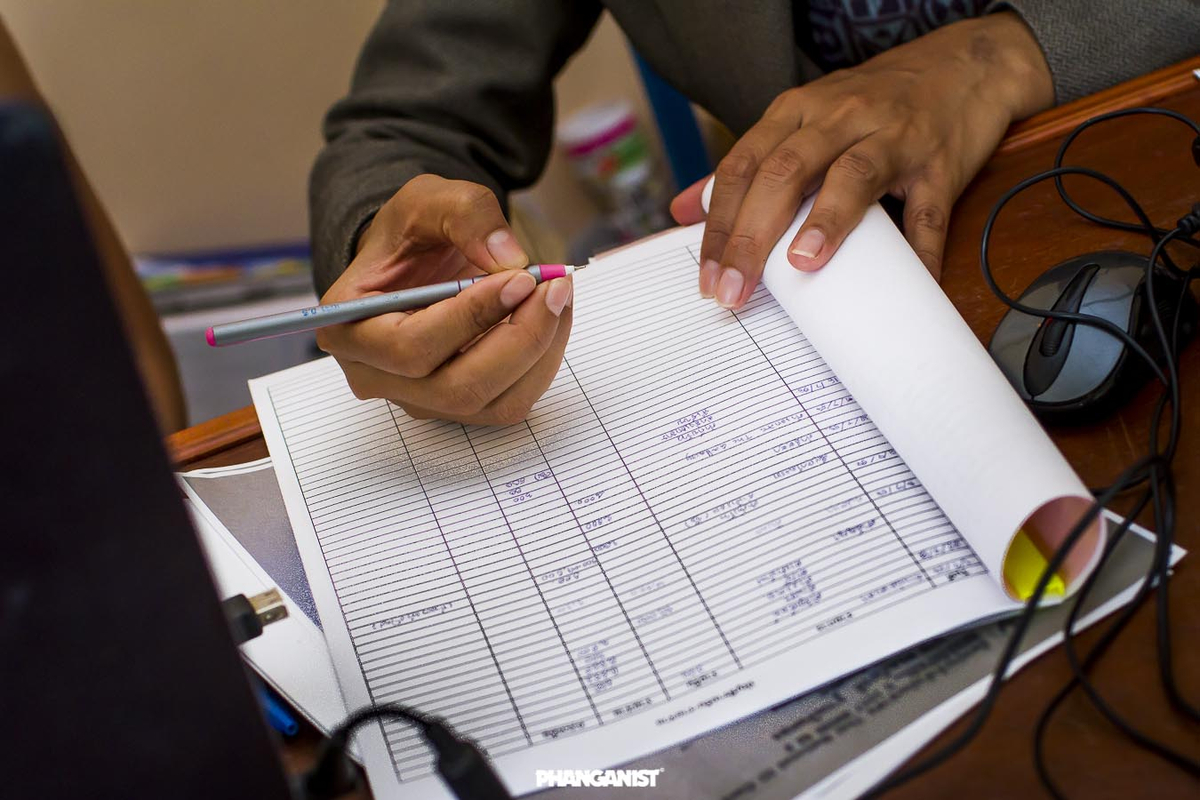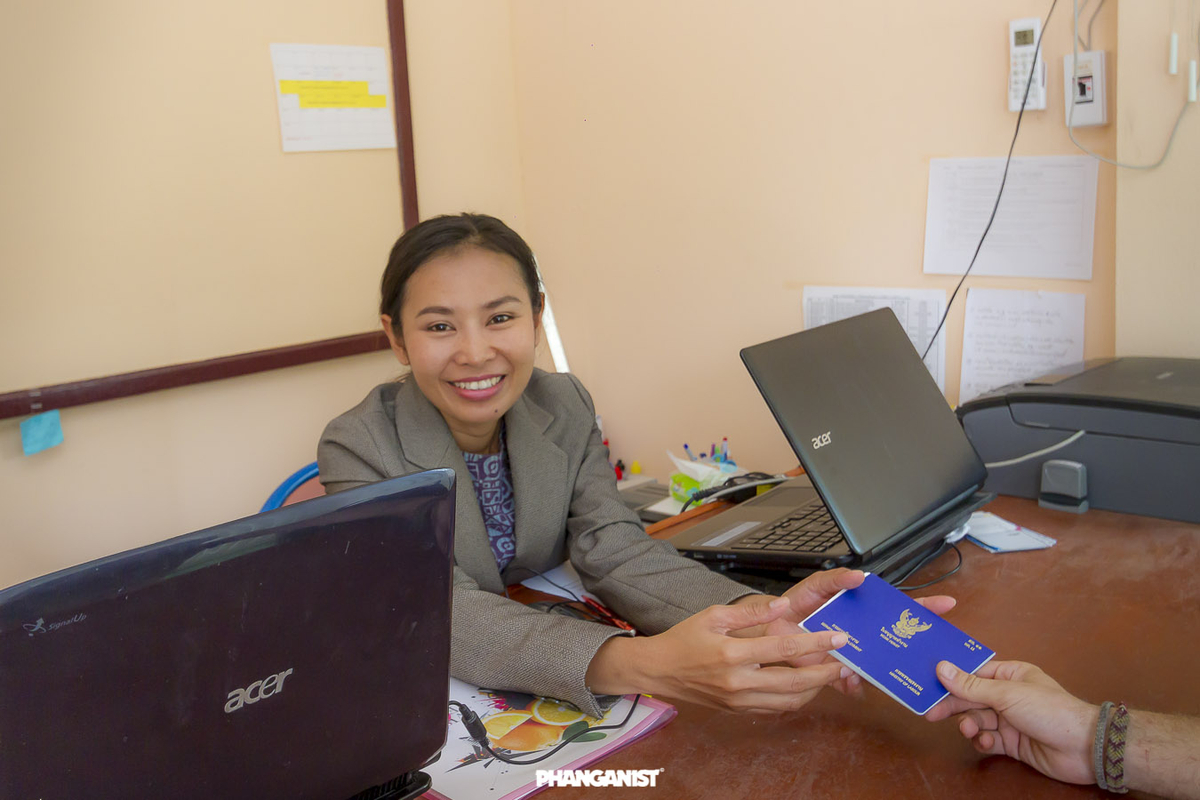When it comes to obtaining the proper visa to work or conduct business in Thailand, including for Koh Phangan, ex-pats sometimes refer to ‘work visas’ and ‘business visas.’
It can be perplexing, particularly for new ex-pats who are still learning the ropes.
So, if you're coming to Thailand for work or business, which visa will you need?
In fact, they're both the same visa. A Non-Immigrant Visa B is Thailand's official term for a working or business visa.
What is a Non-B Visa?
The Non-Immigrant Visa ‘B,’ or Non-B for short, allows you to remain in Thailand for one to two years without having to leave.
The Non-B visa is for entrepreneurs, company owners, and ex-pats employed or doing business in Thailand.
The Non-B visa is sometimes referred to as a ‘company visa’ or a ‘working visa.’
As long as you meet all of the required conditions, you can obtain or renew your Non-B visa.
Requirements
In Thailand, there are two ways to obtain a Non-B visa:
To be hired by a Thai company OR start your own Thai company and employ yourself.
Without supporting documents from a Thai business, you won't be able to apply for a Non-B visa on your own. It could be your Thai boss or your own company.
It will be difficult to find work in Thailand if you do not have at least a bachelor's degree. In Thailand, bachelor's degrees are commonly required.
You can still find work if you have a good track record and years of experience, particularly for you IT professionals out there.
However, if you want to teach English in Thailand, you'll need a bachelor's degree.
Foreigners are not permitted to work in all Thai businesses. Companies who wish to recruit foreigners must meet the following requirements:
Have a 4:1 ratio of Thai to foreign employees AND have more than 2 million baht in capital per foreign employee.
These conditions are not mandatory if your company or the company that employs you is promoted by Thailand's Board of Investment or BOI.

The Two Types of Non-B Visas
Non-B visas are divided into two categories:
A visa for just one entry (Single Entry)
A visa with several entries (Multiple Entry)
These two visas are almost identical, with the exception that if you leave Thailand without a re-entry permit, you will lose your single-entry Non-B visa.
The multiple-entry Non-B visa, on the other hand, allows you to leave the country as many times as you want.
Application Process
Follow the steps outlined below to apply for your Non-B visa.
Prepare the paperwork
Make sure you and your employer have all of your paperwork in order before applying for your Non-B visa.
You'll need the following documents from your employer to apply for a Non-B visa:
The letter of approval from the Ministry of Labour, the Board of Investment, or other government agencies.
The employer's invitation letter detailing your work title, wage, contract duration, and responsibilities.
Vat registration certificate and company registration
A shareholders' list
A directory of all ex-pat employees, including their names, nationalities, job titles, and pay scales.
A business map - a list of the most recent fiscal year's financial records and statements.
The employer must also send a stack of documents to various government agencies in order to receive the approval letter. The procedure takes several weeks.
You'll need the following documents on your end:
Two passport size images (4cm x 6cm) taken within six months with a white background.
Bank statement with at least 20,000 baht for a single person or 40,000 baht for a family.
A copy of your passport valid for more than six months and two blank pages on both sides.
While you can apply for a Non-B visa with six months left on your passport, it is preferable to do so when your passport is older than two years. You won't have to think about changing the Non-B visa to a new passport if you do it this way.
You must also submit your resume as well as any teaching qualifications or TEFL if you are applying for a teaching position. You may also be required to submit a criminal background check. However, this is done on a case-by-case basis.
Keep in mind that each Thai embassy has its own set of requirements. Often double-check with the Thai embassy you're applying to before visiting.
Applying Outside of Thailand
If you're in the following categories, you can apply for a single-entry Non-B visa at any Thai embassy worldwide, including those in Cambodia, Laos, Malaysia, and Singapore:
Australian
American
European
If you are a person of a different nationality, consult with the Thai embassy where you plan to apply. Use this connection to find contact information for all Thai embassies around the world.
If you are from an African country, you will need to return home to apply for a visa there.
If your country does not have any Thai embassies, contact the Thai consulate and ask for recommendations. You may need to apply for your Non-B visa in a neighbouring country.

Applying Within Thailand
It is possible to turn a tourist visa into a Non-B visa at the immigration office while you are in Thailand and on a tourist visa. However, you'll have to meet a few more rigorous criteria.
Your tourist visa must be valid for at least 21 days.
Your employer would need to prepare more supporting documentation for you–if they can do so on time.
If you're from Africa, converting your tourist visa to a Non-B visa is a great choice. However, you can only do this if you have a copy of your criminal record check with you.
You'll have to fly back home to get a criminal background check if you don't have one. You may then simply apply for a visa in your home country.
For anyone else, after you've submitted all of your paperwork, your visa should be processed within three business days.
Extending Your Single Entry Non-B
You'll usually get a 90-day Non-B visa until your Non-B visa is accepted.
To extend your visa, you must go to the One-Stop Service Center if you work for a BOI-promoted organization.
To extend your visa, you must submit the same documents as you submitted when you applied for it. However, you'll have to turn in your Thai work permit, which you'll apply for once you've received your Non-B visa.
You must leave Thailand and reapply for a visa if you are unable to extend your visa until it expires. You can choose between the options of a single re-entry permit or a multiple re-entry permit for per year while extending your business visa.
The key distinction between the two permits is that for a single re-entry permit, you must apply for one each time you leave Thailand and want to return. If you don't, your visa will be revoked.
You can come and go as you please with a multiple re-entry permit and your visa will not be lost.
Reporting
If you have your Non-B visa, all you have to do is report to immigration every 90 days for the rest of your stay. You can now do this online or by visiting immigration on Koh Samui.
If you need a new passport for some purpose, your embassy will send you a letter requesting that your Non-B visa be transferred to your new passport.
Take your letter to immigration, and your visa will be transferred for free.
Renewing
In Thailand, you will renew your Non-B visa 90 days before it expires. The procedure for renewing a visa is the same as for extending a visa.
If you renew your Non-B visa, however, you can receive a one or two year visa without having to go through the original extension process.

Cancelling
If you are fired, leave, or resign from your job and your employer notifies the Thai government, your Non-B visa will be revoked.
You have two choices until they inform the appropriate authorities:
You must leave the country within 24 hours
Apply for a seven-day visa extension at immigration for 1,900 baht.
If you don't do any of these things, you'll be charged an overstay fee and risk being blacklisted.
Furthermore, overstaying your visa can jeopardize your chances of obtaining a new visa in the future.
When or if your Non-B visa expires, follow the proper procedure to avoid violating any Thai rules.
Benefits for your family
Your parents, spouse, and unmarried children under the age of 20 can apply for a Non-immigrant O visa and stay in Thailand with you if you have a Non-B visa.
The application process and documentation required are identical to those required for a Non-B visa application.
They must, however, submit their passports, photographs, and either their marriage or birth certificates.
They'll be allowed to stay in Thailand for the same amount of time as you did on your Non-B visa.
Summary
If you get a job with a company in Thailand that can legally employ ex-pats, or set up your own company, then getting the Non-Immigrant Visa B is a simple procedure. Remember you will also need to apply and receive your work permit that accompanies your Non-B visa and allows you to work.
Set up a meeting via WhatsApp with a certified lawyer about getting a Business visa and or a Working permit.
Click to Chat













